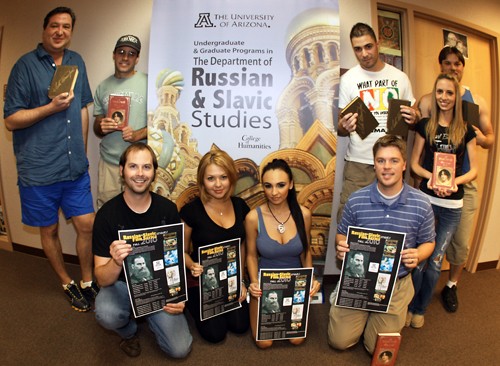To commemorate the centennial of Leo Tolstoy’s death and venerate his force as a player on the world’s stage, the department of Russian and Slavic Studies is hosting a film series on select Wednesdays and Thursdays in October and November. Screenings will include reproductions of his work and will culminate in a biography called “”The Last Station”” about Tolstoy’s last days. And beginning Oct. 20, the department will show the 1977 PBS series “”Anna Karenina”” over five consecutive Wednesdays.
The purpose of this film series, a biannual set of events hosted by the department of Russian and Slavic Studies, is not only to demonstrate the power of Tolstoy’s work, but also to celebrate the life of the important pacifist, non-militarist, ethicist, vegetarian and astonishing educational reformer, himself. This philosophy, so influential that it moved Mahatma Gandhi (who in turn, was a source of inspiration for Martin Luther King, Jr.), is what makes Tolstoy’s legacy worthy of so much attention.
“”Tolstoy was a giant on the world culture stage,”” said Teresa Polowy, the head of the department of Russian and Slavic Studies. “”He was truly a renaissance person — a deep and profound thinker or moral and religious treatises. He had a real belief in man as an integral player both as an individual but also as part of the universe.””
Tolstoy’s goal in his writing, much like the goal of this film series, was to teach.
“”His profundity of thinking greatly impacted world culture,”” Polowy said. He understood that knowledge is power.
Everyone has at least heard of “”War and Peace”” and “”Anna Karenina””, for these sizeable works have been adapted countless times. “”Anna Karenina”” has been adapted into operas, plays, television series and 11 films of the same name, while “”War and Peace”” is more than seven hours long and was already shown as part of the series over the course of two Thursdays, each segment running for 3.5 hours.
Tolstoy’s philosophy has been perpetuated through his works that were recreated for cinema. He wanted to demonstrate the hypocrisy of society, government and man-made laws; the juxtaposition of the city and the country; and, later in life, the hypocrisy of the church. He believed finding true happiness meant striving for inner-perfection as opposed to looking outward at the church for guidance and vehemently believed that the state was designed to corrupt and exploit its citizens.
These beliefs caused him to be excommunicated from the church, which further encouraged him to explore many religious treatises, such as abstinence — themes explored in “”The Kreutzer Sonata””, which will be shown Thurs. Oct. 28 — and non-violent resistance. Both of these reflections also inspired Gandhi and King’s civil disobedience.
“”He was influential for many and deserves to be remembered,”” Polowy said. And indeed, rememberance is the intention of the film series. Through cinema, we can look at and analyze the themes and philosophies that drove Tolstoy to write. We can learn about how his mind worked and be given new perspectives.
Too often do we go and see movies and all we have to say about them is “”Oh, that was good”” or “”Yeah, I liked it.”” What is being offered here will give you more substantial things to think and talk about.









